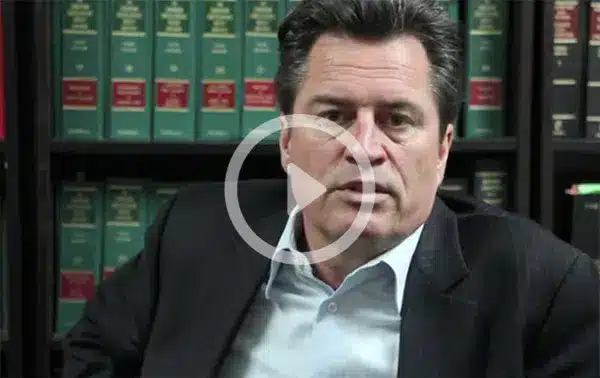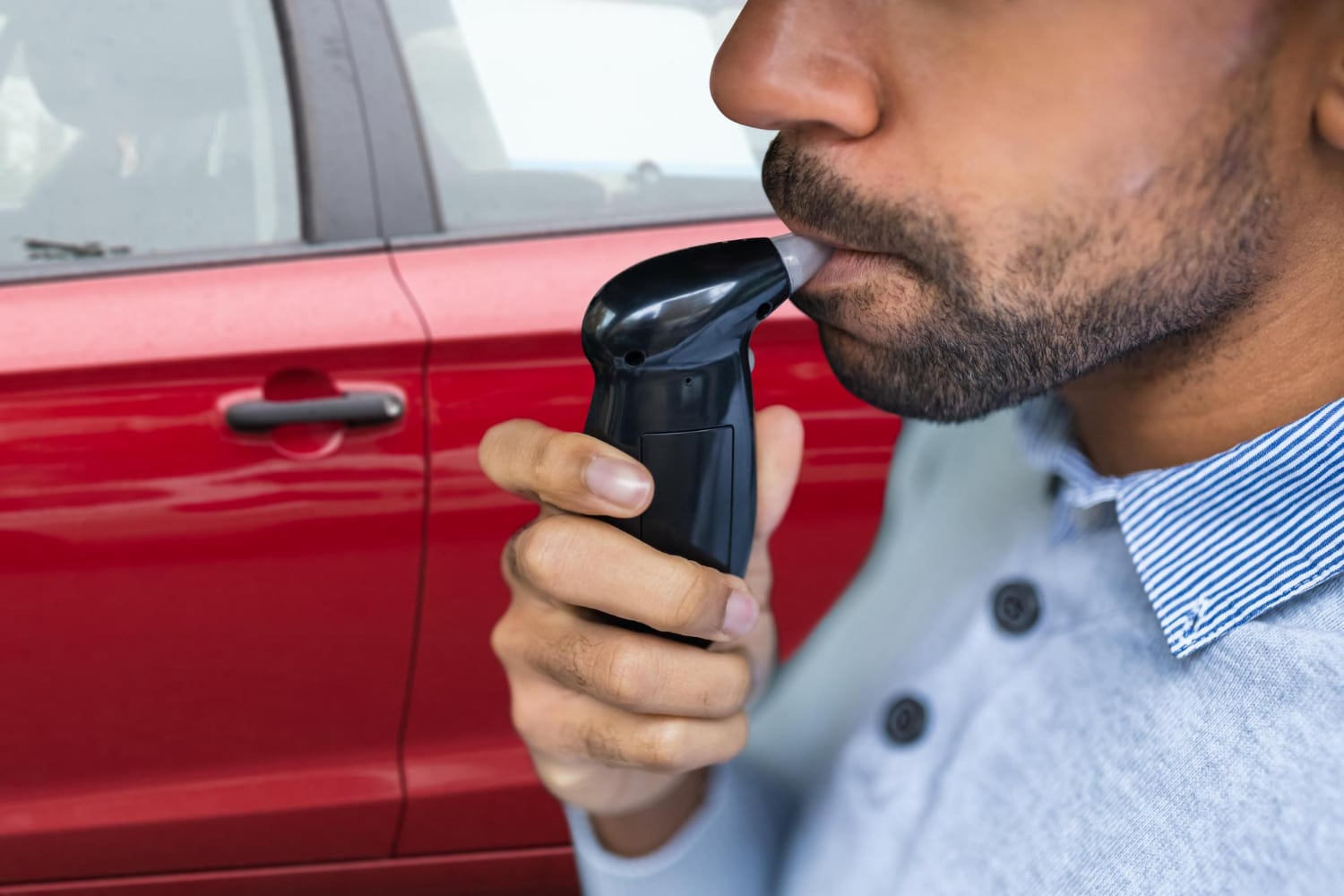SPEAK WITH A LAWYER NOW
Schedule a free DUI case review
DUI Defence
A DUI is an abbreviation for the term Driving Under the Influence. DUI occurs when your Blood Alcohol Level is over the legal limit or you are deemed as an Impaired Driver.
A DUI is a criminal offence that can haunt you for the rest of your life if not dealt with appropriately. This Criminal charge can range from alcohol to drug use of all sorts. Never plead guilty to a DUI charge without consulting a Criminal Lawyer first.
There are Three Common DUI Charges in Ottawa:
Calvin Barry offers free DUI consultations at the click of a button; even if you’re not sure if your case will qualify for Calvin’s services, be sure to call. Calvin and his team will have a free screening with you regarding your case.

DUI Charges Can Affect You for Life
Drinking and driving or DUI charges in Ottawa are Criminal Code offences that come with mandatory sentences even for individuals with no Highway Traffic Act record or Criminal record.
1st Offence
• Enrollment in alcohol education course
• One-year suspension of driver’s licence
• One-year enrollment in the ignition interlock program after the reinstatement of the licence
2nd Offence
• 30 days of jail time
• Three-year enrollment in the ignition interlock program after the reinstatement of the licence
3rd Offence
• 120 days of jail time
• Lifetime enrolment in the ignition interlock program after the reinstatement of the licence if it was ever reinstated
We recommend consulting with us at Calvin Barry Law to determine the best steps for your defence. Know that you are entitled to legal consultation upon detention or arrest and it is best to consult with an impaired driving lawyer before further actions from law enforcement. We aim to defend your case to get the lowest possible penalty if the dismissal of charges is not viable.
DUI Charges
Care & Control
This is a charge of impaired driving to someone who is not actually driving the motor vehicle. This is charged to someone who had care and control of the vehicle while impaired, with the police officer having reason to believe that the person has the same control while actually operating the motor vehicle.
Impaired Driving
This charge is made without a blood alcohol test reading or a breathalyzer test when the police officer believes and can prove that the person driving the vehicle cannot do so safely due to impairment by drugs or alcohol. An officer can lay this charge if the driver, exhibits erratic driving, unsteady gait, lack of motor coordination, and slurred speech. Note that in this charge, the prosecutor and the charging officer have to prove that the driver’s ability to operate a vehicle is impaired due to drug use or alcohol ingestion.
Over 80 mg
This charge is made when the driver has a BAC (blood alcohol content) level of more than 80 milligrams of alcohol for every 100 millilitres of blood via an approved screening device such as a breathalyzer. The officer must have probable and reasonable grounds that the person’s ability to operate a motor vehicle is impaired by drugs or alcohol before submitting a person for a BAC screening.
Refuse Breath or Blood Sample
This charge is made when a person suspected of impaired driving refuses to provide a blood sample or a breath sample to a police officer. This charge also applies when the sample provided is deemed insufficient for the investigation.
DUI Defence
At Calvin Barry Law, we strive to fight for you to get the best outcome in your case, whether it be a reduced penalty or the dismissal of charges. We customize our legal strategies best to suit your circumstances concerning your impaired driving charge. Our team of experienced lawyers will strive to create a defence tailored to your specific case so you can get the best possible result. These include:
Challenging the reasons cited by the police officer for obtaining a breath sample
Challenging the technical aspects of the procedure for blood testing or using a breathalyzer
Challenging the subjective judgment of the police officer about what constitutes impairment
Challenging other details that are exclusive to the circumstances of your arrest
Appealing for the exclusion of evidence that the police officer obtained with violation of your Charter protected rights
We strongly encourage consulting with our team at Calvin Barry Law to determine the best defence strategy for your impaired driving charge. Know that it is your legal right to hire an impaired driving lawyer upon arrest or detainment related to impaired driving.
DUI Lawyer FAQs - Ottawa
Is it worth fighting a DUI?
Absolutely. The consequences of a DUI conviction can be severe and long-lasting, affecting not just your driving privileges but also your criminal record, employment opportunities, and insurance rates. By fighting a DUI charge, you may be able to reduce the charges, lessen the penalties, or even have the case dismissed entirely. Each case is unique, and a successful defense depends on the specifics of your situation. To understand the potential benefits of fighting your DUI charge, contact us for a personalized assessment.
How to win a DUI case?
Winning a DUI case involves a strategic defense tailored to the specific details of your arrest. This could include challenging the accuracy of the breathalyzer test, the legality of the traffic stop, or the conduct of the arresting officers. An experienced DUI lawyer can identify any procedural errors or violations of your rights that could lead to a successful defense. To explore strategies for your case, fill out our form to get started on your defense.
What is the best case scenario for a DUI?
The best-case scenario would be a complete dismissal of the charges, meaning you would face no penalties or criminal record. Other positive outcomes could include reduced charges or a plea bargain that minimizes the impact on your life. The best outcome depends on the evidence against you and the defense strategy employed. To aim for the best possible outcome, seek expert legal advice as early as possible.
Should I plead guilty to a DUI?
Pleading guilty to a DUIshould never be done without first consulting with a lawyer. There may be aspects of your case that could significantly affect the outcome and pleading guilty forfeits the opportunity to challenge the charges. It’s important to fully understand the consequences and explore all your options. For an informed decision, reach out for legal counsel.
How much does a lawyer cost for a DUI?
The cost of a DUI lawyer in Ontario can vary widely based on the complexity of the case, the experience of the lawyer, and the length of the legal process. Some lawyers charge flat fees, while others charge by the hour. It’s important to weigh the cost against the potential savings in fines, increased insurance rates, and other long-term costs of a DUI conviction. For a quote and to understand the value a lawyer can provide in your case, please fill out our form for a consultation.
For more detailed information and a personalized approach to your situation, please visit GetDefended.ca’s DUI Defence page and consider reaching out for a confidential consultation.
What are the DUI laws in Ottawa?
Sections 320.11 to 320.4 of the Canadian Criminal Code cover the impaired driving laws in Ottawa. Charges for DUI vary based on the circumstances leading to the arrest. The charges include:
- Care and Control
- Driving Under the Influence
- Failure to Provide a Breath Sample
- Impaired Driving
- Over 80 Mgs BAC Reading
The prosecutor’s strategies for establishing guilt for the above charges vary, but the penalties for a guilty finding are the same.
What happens after a person is arrested for DUI in Ottawa?
A person is arrested for DUI in Ottawa after the police officer has established reasonable suspicion that the person may be impaired while driving based on observations and roadside testing. The person will be brought to the police station for further testing and evaluation. Note that refusing to provide fluid samples or perform a test carries the same penalties as a DUI conviction.
What are the penalties for those found guilty of a DUI charge in Ottawa?
The minimum penalties for those convicted of a DUI charge in Ottawa or anywhere in Canada are as follows:
First Offence
- $1,000 fine for a BAC of 80 to 119, $1,500 fine for a BAC of 120-159, and $2,000 fine for a BAC of 160 or more
- 12-month driving prohibition
- $2,000 mandatory fine for anyone with first refusal to provide a breath sample
Second offence
- 24-month driving prohibition
- 30 days of jail time
Third and Subsequent Offences
- 36-month driving prohibition
- 120 days of jail time
All transportation offences carry a maximum penalty of 10 years on indictment and 24 months less a day on summary conviction.
What are the consequences of a conviction for a drinking and driving charge?
A drinking and driving charge is treated as a serious criminal offence in the Canadian Criminal Code and is met with the following consequences:
- Criminal record
- Expensive administrative fees
- Impounding of vehicle
- Increased insurance premiums
- Mandatory attendance in education and/or treatment program
- Possible ignition interlock requirements if and when driving privileges are restored
What is the maximum BAC or blood alcohol concentration level?
A DUI charge of Over 80 means that the accused registered a blood alcohol concentration of more than 80 milligrams per 100 millilitres of blood as measured by a screening device. The Criminal Code of Canada lays down specific requirements for the collection of blood and breath screening samples under Section 320.14(1).
According to the Canadian Criminal Code, qualified technicians must handle screening devices for the reading to be admissible in court as evidence. The testing must be completed within a window of 2 hours starting from when the accused was initially detained by the arresting officer.
Individual samples should only be taken at intervals of 15 minutes. Because of the technical aspects and strict legal requirements of testing an accused’s BAC, an accused will need a highly skilled DUI lawyer’s services to challenge the results and identify possible errors.
How to beat a DUI charge effectively?
A criminal defence lawyer with expertise in defending DUI charges is the first step in effectively beating a DUI charge. Each DUI charge that goes to trial carries key differences that require a skilled DUI lawyer to defend effectively. An experienced DUI lawyer has a repertoire of defences to form the best strategy to defend a DUI charge based on specific circumstances and charges. An Over 80 charge will not have the same defence as a Care and Control charge and will require a different strategy.
What are the common defence strategies used for a DUI charge?
The defence strategies that are most often used for a DUI charge are the following:
- Challenging if the accused’s Charter-protected rights were respected
- Challenging the arresting officer’s interpretation of care and control
- Challenging the validity of the drug screening or the validity of the BAC screening device
- Raising legal reasons if the accused failed to provide a sample, refused a roadside screening, or rejected a breathalyzer test
- Questioning the lawfulness of the police procedure and the original police detainment
How much does it cost to hire a DUI lawyer?
The professional and legal fees charged by a DUI lawyer vary based on the amount of time spent defending the accused and the case’s complexity. Although the court time spent for hearings of DUI charges is usually short, the DUI lawyer will spend a lot of time sorting through details to create an effective defence strategy. Defending some cases can take a lot of time due to assorted motions which will require additional time for case preparation, research, interviewing witnesses, and more.
Can a DUI charge go away without a trial?
A skilled DUI lawyer may be able to resolve the charges in favour of the accused by negotiating a settlement with the prosecution and/or without having to go through a trial. If the DUI lawyer can recognize a significant flaw in the Crown’s case before the trial, that information can be used by the DUI lawyer to convince the Crown to drop charges.
Generally speaking, the Crown prosecutor will reject dismissals except when the recognized flaw is obvious and cannot be ignored. An experienced DUI lawyer will know how to work with the case details to achieve the most favourable outcome for the accused while making the other party think they are not at a disadvantage. In most cases, the Crown will opt to drop the DUI charges for the acceptance of a guilty plea for a lesser offence such as careless driving.
Is there a chance of getting a DUI charge dismissed in Ottawa?
As mentioned in response to other DUI FAQs, Crown prosecutors will usually not dismiss charges unless with a compelling reason to do so. The possible reasons for a DUI charge to be dismissed with the help of a DUI lawyer are if the accused’s charter rights were not protected, the screening methods used were impaired, the arrest was questionable, there were mistakes during the stop and detention, and other similar circumstances wherein the right processes were not followed.
Is it possible for a Ottawa DUI charge to be dropped?
The Crown prosecutor is likely to drop the DUI charge if their case is so flawed that they cannot win during the trial. If the DUI lawyer knows for certain that the case is flawed but could not convince the Crown prosecutor to drop the case, then the DUI lawyer can use the flaw as a key defence strategy during the trial and possibly achieve a not guilty sentence.
Will auto insurance get affected by a DUI conviction?
A DUI conviction means having to pay higher auto insurance in most cases. Insurance companies may choose not to renew insurance or reject an insurance application for someone guilty of a DUI. If you can find an insurance firm willing to take you as a client, be prepared to be charged a minimum of twice the standard rate.
Can a DUI conviction have an effect on permanent residency in Ottawa?
Since impaired driving offences are classified under serious criminality in Ottawa, Canadian immigration law Bill C-46, Part 1 says that it is grounds for revocation of permanent resident status and could lead to deportation.
Is it possible to remove a DUI from a person’s record?
Canadian law does allow for the expungement or suspension of a DUI criminal record. This action seals the record from public view while law enforcement can still access the data. Application for a record suspension is possible five years after a guilty plea or a conviction and may need the services of a DUI lawyer.
In Ottawa, you can face serious charges under the Canadian Criminal Code if caught driving while intoxicated. This can include refusing a breathalyzer test, impaired driving, or having a breath sample with more than 80 mg of alcohol. The consequences of driving under the influence (DUI) conviction are severe, with increased insurance premiums and the potential loss of your driver’s license. There may also be other long-term repercussions, such as difficulties in finding employment, travelling, or maintaining your current job.
Driving when influenced by alcohol or drugs in Ottawa is a criminal offence punishable by law. Even if the accused has a clean record of violating the Highway Traffic Act or is new to a criminal record, the cost of a first DUI conviction could result in a 12-month driving ban and a fine of up to $1000.
Subsequent convictions may include jail time for a minimum of 30 days for a second offence and 120 days for a third offence. If aggravating circumstances such as reckless driving, an accident, or a high blood alcohol concentration (BAC) following a breath test is present, the punishment may be more severe.
Client Reviews
Our clients praise us for our outstanding results, personable service and expert knowledge. Here are a couple of things some of them had to say:
Thank you!
Read Our News & Blog Content
Latest News – Toronto’s source for criminal law updates, alerts, news and analysis from leading lawyers in the field.

Why You Should Choose a Local DUI Lawyer in Newmarket for Your Case
Facing a DUI charge is a serious matter, and choosing the right lawyer can make all the difference in your case.

Challenging DUI Evidence in Toronto: Breathalyzer and Blood Test Accuracy
Facing a DUI charge can be daunting, especially when the evidence includes breathalyzer and blood test results.

Top 5 DUI Defence Strategies for Residents of Sudbury
Facing a DUI charge can be a stressful and overwhelming experience, especially for residents in Sudbury.
Contact Calvin Barry Today.
Contact an experienced criminal defence lawyer in Ottawa to fight for your case.